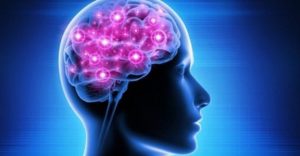Dopamine : New Study

A new study shows that dopamine release in the human brain plays a crucial role in encoding both reward and punishment prediction errors.
- Dopamine is a neurotransmitter.
- It is a chemical messenger that helps in the transmission of signals in the brain and other vital areas.
- It is found in humans as well as animals, including both vertebrates and invertebrates.
- It plays a role as a “reward center” and in many body functions, including memory, movement, motivation, mood, attention, and more.
- Dopamine is released when your brain is expecting a reward. When you come to associate a certain activity with pleasure, mere anticipation may be enough to raise dopamine levels.
- Dysfunction of the dopamine system has been implicated in different nervous system diseases.
- High or low dopamine levels are associated with diseases including Parkinson’s disease, restless legs syndrome, and attention deficit hyperactivity disorder (ADHD).
- Neurons in the region at the base of the brain produce dopamine in a two-step process.
- First, the amino acid tyrosine is converted into another amino acid, called L-dopa.
- Then L-dopa undergoes another change as enzymes turn it into dopamine.
- In other parts of the body, dopamine acts as a type of hormone called catecholamine. Catecholamines are made in the adrenal glands- small hormone production factories that sit on top of the kidneys.
- There are three main catecholamines: Dopamine, Epinephrine (adrenaline), and Norepinephrine.
- These hormones get released into the bloodstream when the body is physically or mentally stressed.
- They cause biochemical changes that activate the so-called fight-or-flight response.
- That’s the body’s natural reaction to real or perceived stress.




